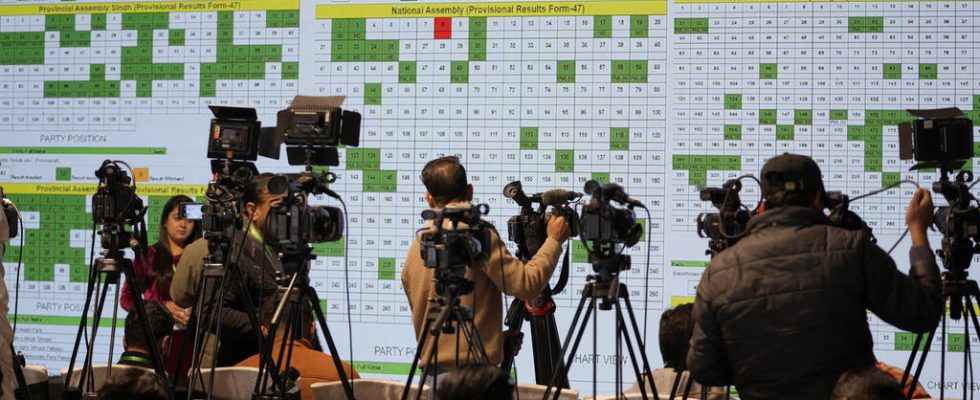Still no official and final results in Pakistan, two days after the legislative elections. But increasingly precise trends nonetheless. The surprise seems to be confirmed on the side of Imran Khan’s Pakistan Tehreek-e-Insaf (PTI): the independent candidates they supported are in the lead in terms of seats, 99 according to the latest count. Except that it is not enough to obtain an absolute majority, and this could benefit the Pakistan Muslim League (PML-N), of Nawaz Sharif, a priori better placed to negotiate alliances.
2 mins
What is emerging this Saturday, February 10, is an alliance of the PML-N, the party of Nawaz Sharif (71 seats) and the Pakistan People’s Party (PPP) of Bilawal Bhutto Zardari (53 seats), which have joined agreed last night for “work together» that is to say, forming a coalition in order to have the majority, says our correspondent at Pakistan, Sonia Ghezali. Nawaz Sharif had, last night, given a victory speech in front of thousands of supporters. However, Imran Khan’s PTI, imprisoned in particular for a corruption case, also declared victory. Its candidates who were not authorized to run under the party label, however, have the greatest number of seats, and they seek to join another party in order to have this majority in the Assembly.
A feeling of frustration
Many questions remain unanswered at this stage. The army chief reacted this morning in a press release, declaring that Pakistan must “break with the politics of anarchy and polarization which is not suitable for a progressive country“. These elections and the counting that followed are tinged with irregularities and a feeling of frustration and lack of transparency. The absence of mobile network on election day and internet problems in the days that followed contributed to a climate of suspicion towards the electoral process.
The treatment of Imran Khan and his supporters, victims of repression, has created an anxious and disappointing atmosphere for voters, many of whom do not have confidence in the Pakistani electoral process, as revealed in a recent poll: 70% of the people do not have confidence in the integrity of the elections.
The much-coveted support of smaller parties
Founded on family dynasties and traditionally rivals, the PML-N and the PPP have shared most of the power with the army for decades. They have already worked together and could repeat the experience, writes AFP. They had formed a coalition government, led by Shehbaz Sharif, Nawaz’s brother, after Imran Khan was ousted as prime minister by a no-confidence motion in April 2022. Smaller parties won 27 seats in total, notably 17 for the Muttahida Qaumi Movement (MQM), and could arouse the desires of the PTI in the coming days.
Read alsoLegislative elections in Pakistan: surprising partial results, criticism of the counting
